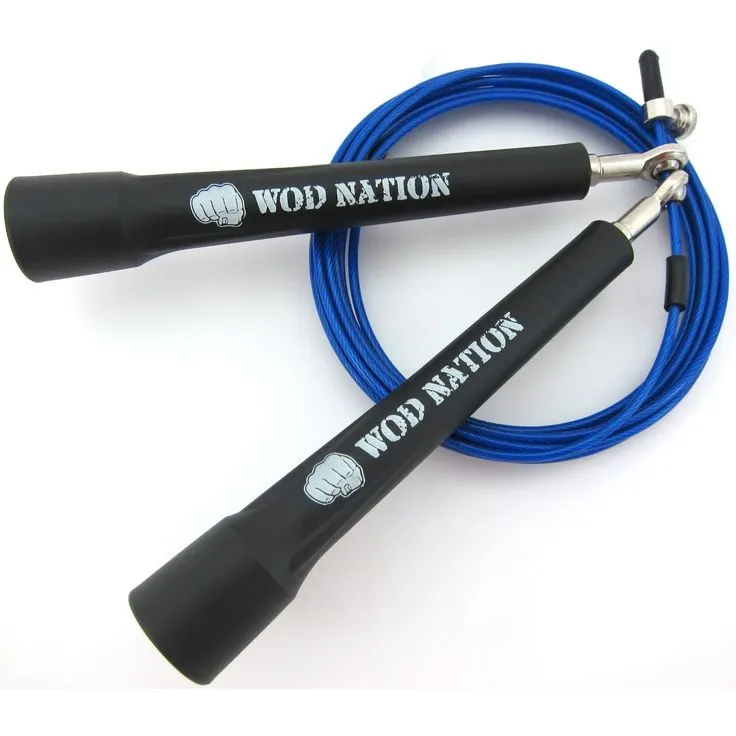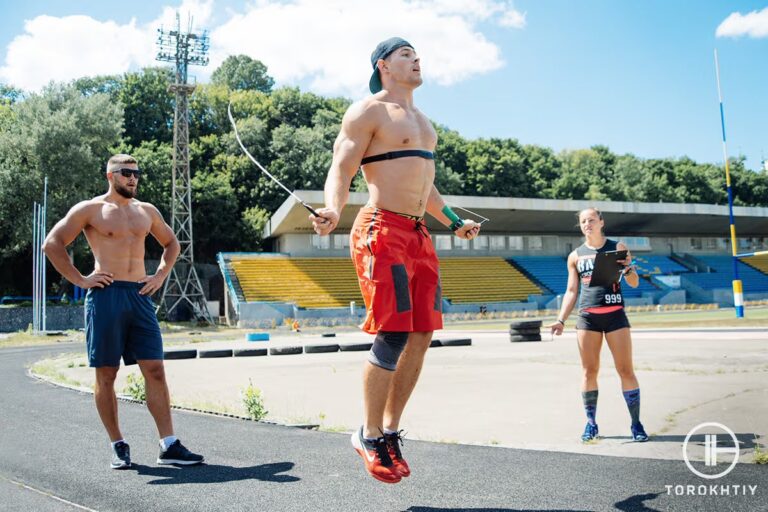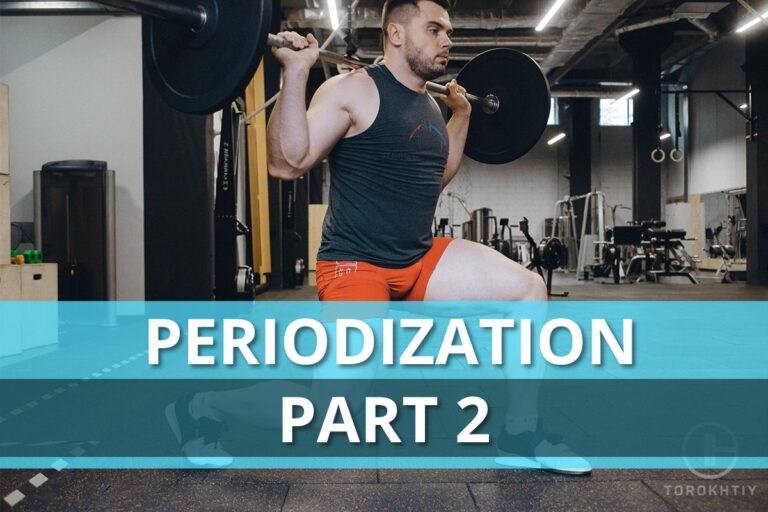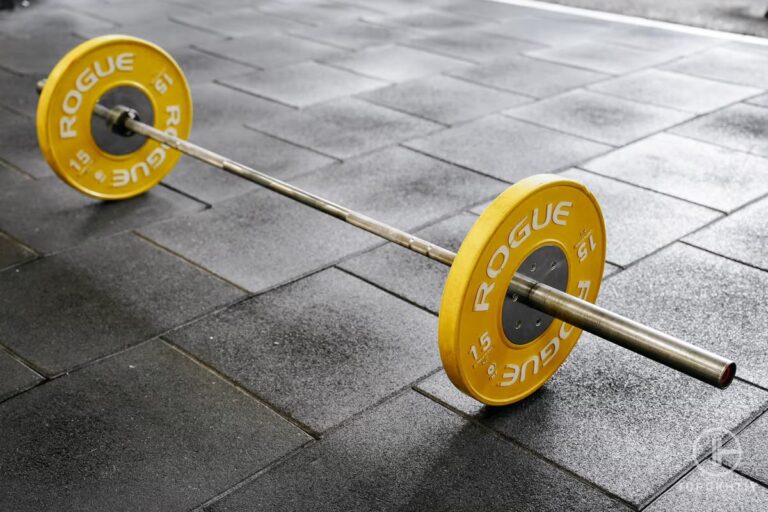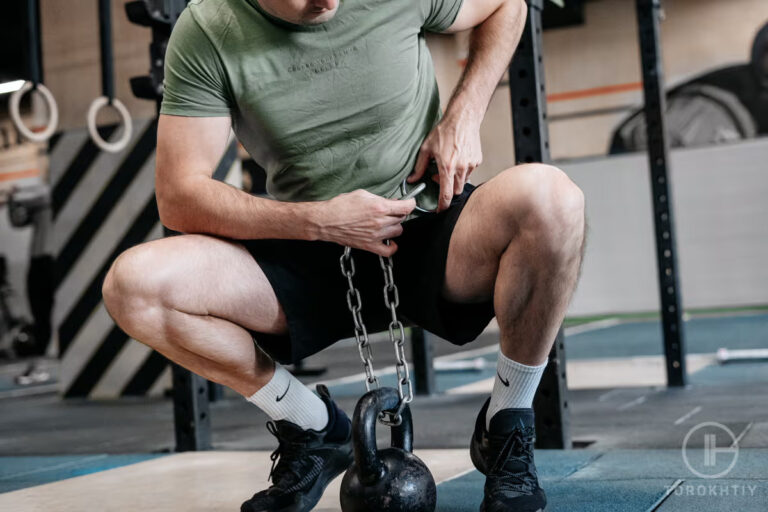Does Jump Rope Make You Faster?
Does Jump Rope Make You Faster? How does jumping rope make you faster? What specific exercises should I do with the jump rope? These and many other questions are addressed, including the best jump rope you can get for yourself.
Does Jump Rope Make You Faster?
The quick answer is yes. The reason being, jump rope training improves your glute strength, your ability to perform a triple extension, strengthens several key muscular, joint, and tendon areas in your legs, and helps your balance and coordination. These factors play a role in speed.
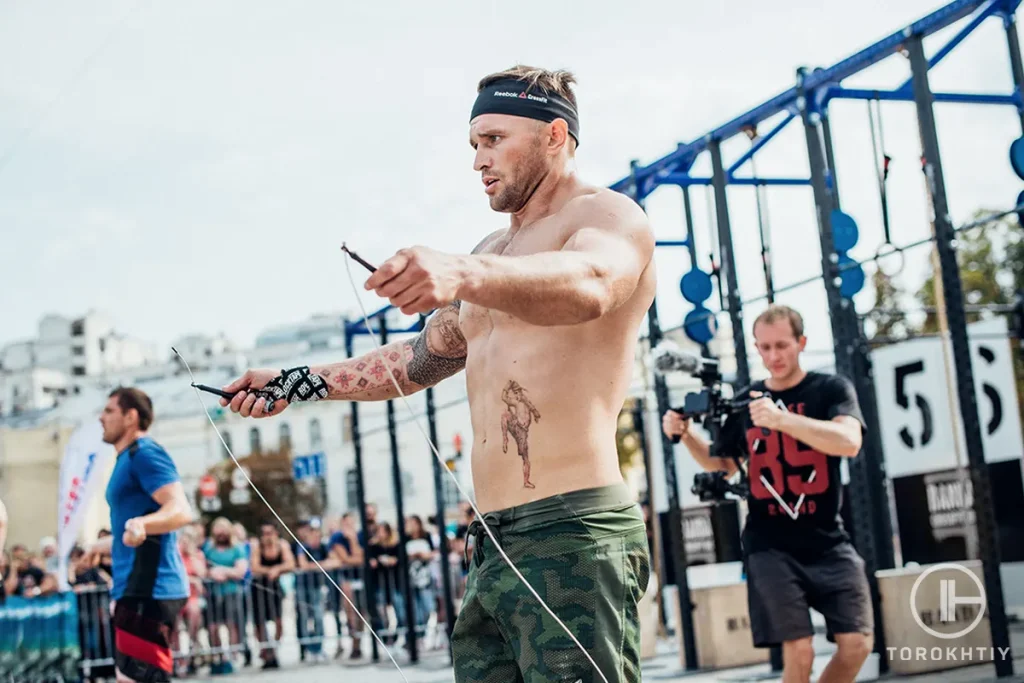
Does Jumping Rope Make You Faster?
Jumping rope has several benefits, one of which is that it makes you faster and improves your overall speed. There are a few different ways jumping rope does this.
- First is the increase in power. With speed, achieving a great triple extension is really important. A triple extension is when your hip, knee, and ankle joints extend at the same time. This creates a boost of power and explosiveness that aids your overall speed. With jumping rope, you’re constantly working on extending your ankles, hips, and knees and building both endurances and synchronicity with those movements.
- Jumping rope is an incredibly good glute workout. Jumping is one of the best ways to activate your glutes and you’re doing that constantly, whether it is higher jumps or smaller ones. The more your glutes build up, the more power you will have, as they are one of the main movers for achieving high speed.
- The third reason jumping rope makes you faster is because of the posture benefits. In order to be fast and keep your speed going for a long distance, you need to have good posture. Otherwise, you will overwork certain muscle groups and will get tired quicker. Jumping rope teaches you to have that posture as you have to be upright and your shoulders slightly back, chest out, and other positive posture cues.
- Lastly, joint and muscle strength. Often in your workout program, you will neglect the benefits of training your feet, ankle muscles, calf muscles, and the tendons and joints in the lower half of your leg. These muscles, tendons, and joints are extremely important for speed and being able to keep a high pace. When you jump rope, you will immediately feel fatigue in these areas first, but with time, you can build both strength and muscles there, which will help you be faster. So, if you’re wondering, does jump roping help with running? It clearly does.
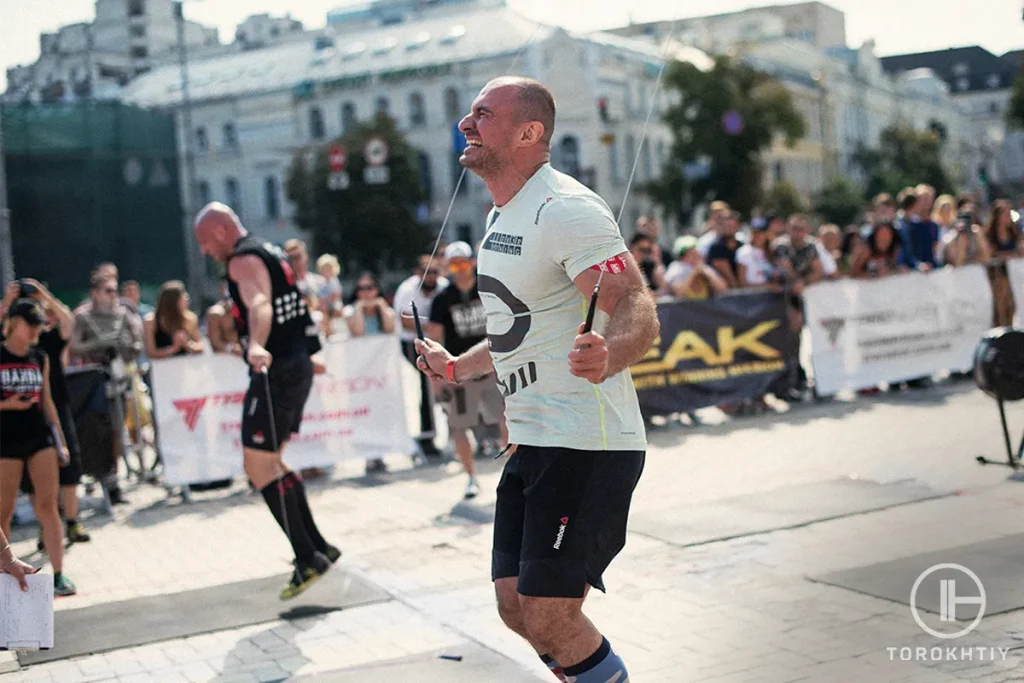
Jump Rope Exercises to Boost Your Speed
Side To Side Jumps
Often when we think of speed, we think of something like a 100 meter where you’re running in a straight line. However, this neglects an important area, which is lateral quickness. If you watch any world-class athlete, you will see the importance of lateral quickness as you need to move side to side quickly. So, using a jump rope to skip side to side is an excellent way to train your lateral speed.
Single Leg Hops
Coordination, balance, and agility are three big factors for speed. One of the best ways to train these attributes is by working your legs one at a time. Not only does this address muscular imbalances, but improves leg explosiveness and power. So, single leg hops with a jump rope are great as you learn to switch back and forth with each swing, or simply hop on one foot for several preset swings.
High Knees
Another drill that can help increase your speed is doing high knees with a jump rope. As mentioned previously, you will attain balance and agility attributes along with training your body to move your feet quicker as you switch between each leg with each swing. Additionally, hip flexors are important for speed as well as they are the primary muscle that actually picks your leg up and puts it down, so high knees give those flexors a great workout.
Double Under
Another great exercise to improve your glute and calf strength and help build up explosiveness is double unders. This is when you have two full rotations of the jump rope on a single jump. So, it trains you to use triple extension so you can get the proper height for the cable to pass under you twice before landing.
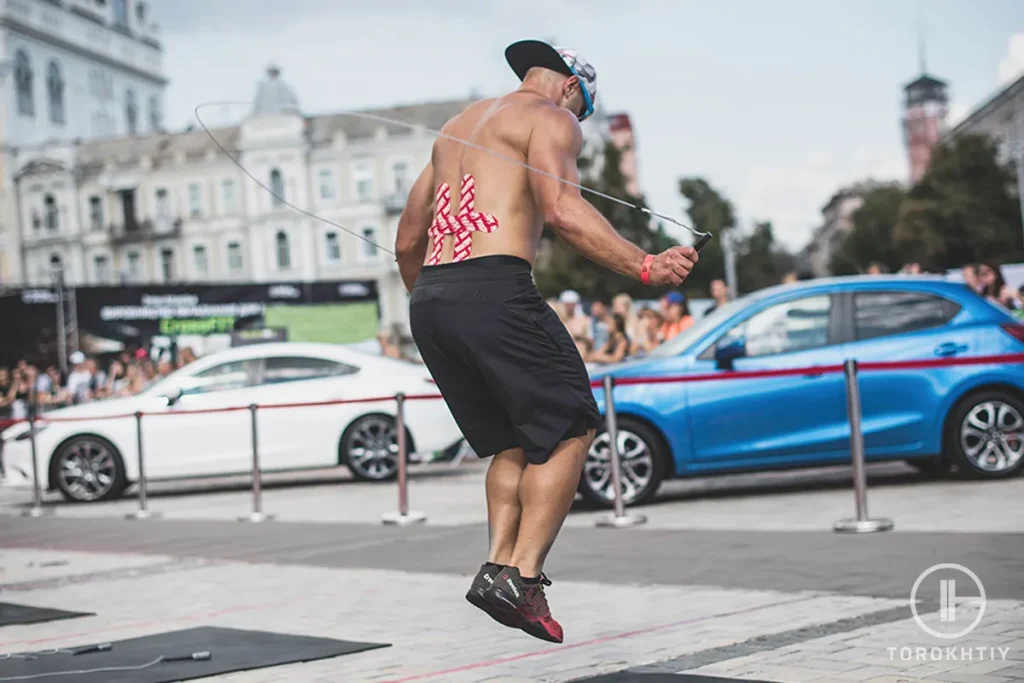
Other Benefits of Jumping Rope
If you’re still wondering, does jump roping make you faster? There are also more benefits of the activity. Jumping rope is also a low-impact activity as it doesn’t put extra strain or hurt your joints as much as compared to some other sports and exercises. Plus, it is also an inexpensive and space friendly workout as all you need is one rope and a little bit of room to get a great workout.
Jumping rope is also a great option for active recovery. Your body and muscles need rest to properly grow, but typically, active recovery is recommended rather than no activity at all. So, jumping rope won’t put extra stress on your body and muscles, but you get the blood flow and cardio benefits still.
Speed Jump Rope We Recommend
The WOD Nation Speed Jump Rope is our go-to jump rope for training and working out. It is especially designed so that it’s stable during your jump rope workout, while saving you precious seconds as the thinner design allows you to get a quicker rhythm.
The steel cable is best used on smooth surfaces, but it also allows you to perform double unders because of the ropes patented 4 bearing system. So, the lightweight handles can spin and twist seamlessly, providing you with enough speed, momentum, and rhythm for perfect double unders.
FAQ
How Long Should I Jump Rope to Get Faster?
It mainly depends on your current fitness level. If you’re a beginner or attempting to get into shape, it would be safer to keep your jump rope workout around 5 minutes or even less as you build up tolerance in your muscles and joints.
Otherwise, a typical jump rope workout is around 20 to 30 minutes. You can either do this continuously or break it up as high-intensity interval training. Both ways use jump rope for running speed.
Do Sprinters Use Jump Rope?
Sprinters do use jump rope. With sprinting, you need strong glutes, coordination, strength in your ankle joints, feet, and tendons, and proper posture. These are checked off by jumping rope. So, it’s natural for a sprinter to use jump rope as a warmup or for active recovery.
Conclusion
Whether you’re training your running speed or simply want to be faster, one of the best things you can do is jump rope as it has several benefits that include strengthening muscles, joints, tendons, improving balance and coordination, and even learning proper posture.
What’s your favorite jump rope workout? What is the best benefit you’ve experienced personally through jump rope training? What are your best tips to achieve a double under?
Let’s discuss all of this and any other questions you might have in the comment section below!
Also read:
- Does Jump Rope Work Abs
- Functional Fitness Jump Rope Workout
- How Many Minutes Of Jump Rope Equals A Mile
- Does Jump Rope Make You Jump Higher
- Weighted Jump Rope Benefits
- Essential Gear for Functional Fitness
- How to Get Better at Jump Rope
- How To Speed Jump Rope
- How To Criss Cross Jump Rope
- Types Of Jump Ropes
- Best Fitness Jump Ropes
References:
- Jump Rope Training // BodyBuilding: https://www.bodybuilding.com/fun/rossboxing4.htm
- 3 Jump Rope Cardio Workouts to Boost Your Running Performance // Runner’s World: https://www.runnersworld.com/training/a26653683/jump-rope-exercises/
- Jump Roping Craze: How to Get the Most Out of This At-Home Exercise // Healthline: https://www.healthline.com/health-news/jump-roping-craze-how-to-get-the-most-out-of-this-at-home-exercise
Why Trust Us?
With over 20 years in Olympic Weightlifting, our team does its best to provide the audience with ultimate support and meet the needs and requirements of advanced athletes and professional lifters, as well as people who strive to open new opportunities and develop their physical capabilities with us.
By trusting the recommendations of our certified experts in coaching, nutrition, dietology, and sports training programming, as well as scientific consultants, and physiotherapists, we provide you with thorough, well-considered, and scientifically proven content. All the information given in the articles concerning workout programming, separate exercises, and athletic performance, in general, is based on verified data. We ensure that you can rely on our professionals’ pieces of advice and recommendations that can be treated as personalized ones which will benefit you and fully meet your needs.
The product testing process is described in more detail here
Author: Ihor Shymechko
Pro Olympic Weightlifter, Coach
Best Results: Snatch – 208 kg,
C&J – 240 kg
Ihor has been a professional weightlifter since 1996, boasting over two decades of competition experience. His notable achievements include clinching the European Championship in 2009 and securing a silver medal in the 105kg division at the Senior World Championships in 2011. Ihor represented his country in the 2008, 2012, and 2016 Summer Olympics. After retiring from competitive weightlifting, he transitioned to coaching, leveraging his vast experience to guide athletes who now compete on both national and international stages.

